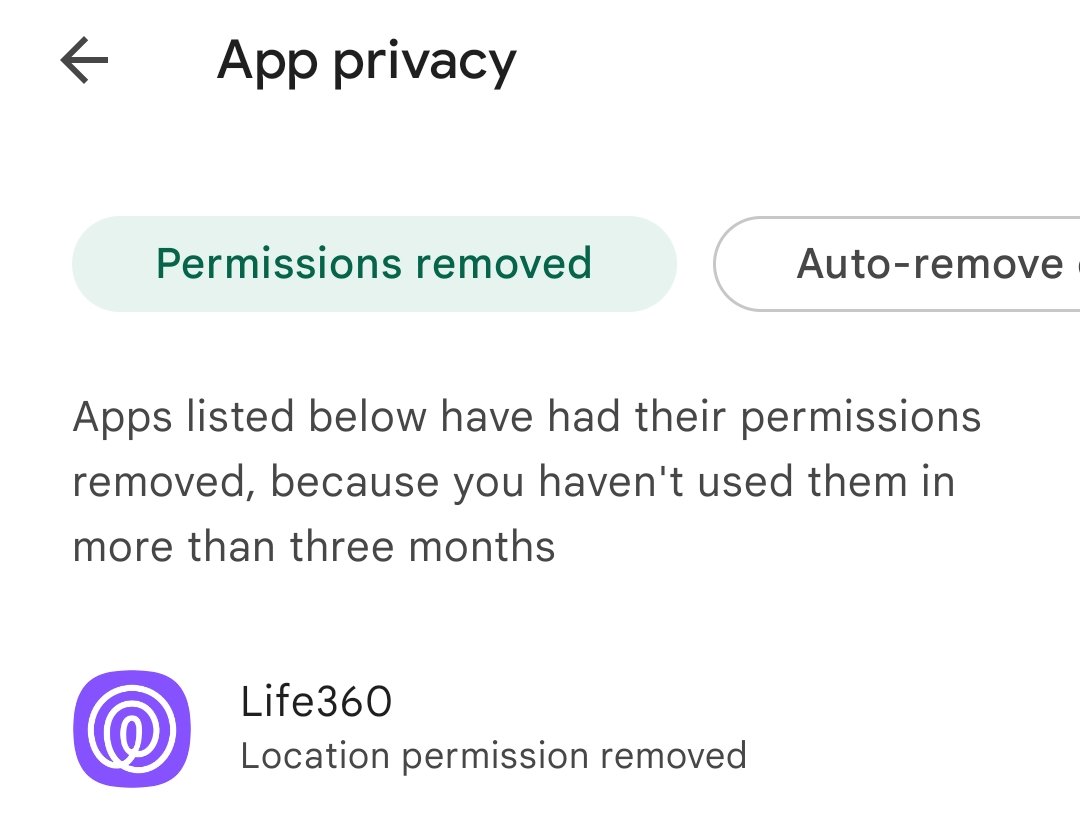
Google notified me it removed permissions from apps not used in more than 3 months on a Samsung/Android10 device, including the 'location' permission of Life360, an app that sells location data to data brokers /cc @jonkeegan @alfredwkng
(background: androidpolice.com/older-android-…)

(background: androidpolice.com/older-android-…)


@jonkeegan @alfredwkng It also removed contacts, SMS, camera, microphone and several other permissions from apps, including from pre-installed Samsung apps, which is a good thing.
Anyway, Google should have introduced this years ago, and it still facilitates large-scale app tracking #toolittletoolate
Anyway, Google should have introduced this years ago, and it still facilitates large-scale app tracking #toolittletoolate
You'll never believe what happens after opening the Life360 app again 🤖
This is obviously not GDPR compliant, and already wasn't when I installed the app on that device in December:


This is obviously not GDPR compliant, and already wasn't when I installed the app on that device in December:
https://twitter.com/WolfieChristl/status/1468180134414983173


In my view, Life360 is among the most unethical app vendors out there. I wish, investigations by EU DPAs and interventions/lawsuits elsewhere would put them out of existence, as a general prevention measure, also addressing Google's joint responsibility.
https://twitter.com/WolfieChristl/status/1467927612626550786
• • •
Missing some Tweet in this thread? You can try to
force a refresh

















